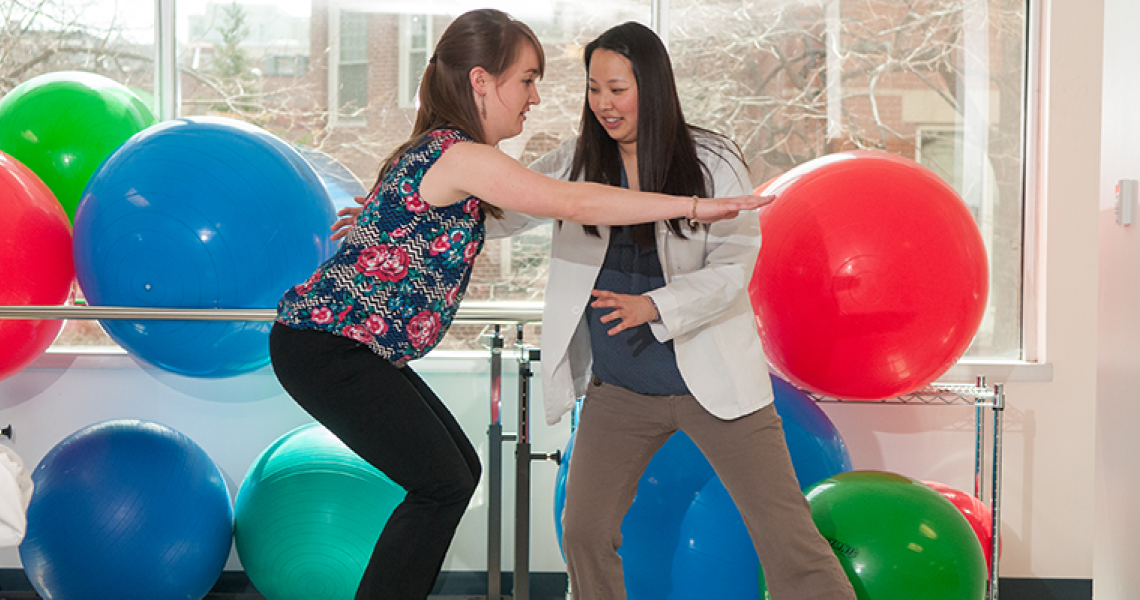
Clinical education is an essential component of the George Washington University (GW) physical therapy curriculum. The clinical education program includes a series of courses that are integrated throughout the Doctor of Physical Therapy (DPT) curriculum. The courses are designed to graduate generalist practitioners who are well prepared to assume the multifaceted and ever-changing role of the physical therapist for patients of all ages across the continuum of care.
Located regionally, nationally, and internationally, our clinical education opportunities provide depth and breadth to each student’s unique educational experience. This part of the curriculum is comprised of two part-time integrated clinical experiences (ICE) in the second and fourth semesters. After completion of all didactic and clinical coursework, including a written comprehensive examination, students participate in three full-time clinical education experiences that are eight, twelve, and fourteen weeks in length. In order to ensure that students are prepared to manage patients sufficiently across the lifespan and continuum of care, each student will have clinical education experiences that provide learning opportunities for individuals across different ages, as well as clinical practice in outpatient and inpatient settings.
"I have been impressed with the amount of knowledge, developed professional attitudes, and clinical know how GW students arrive with when I work with them as a clinical instructor or as a resident in our program. Furthermore, when I take a look across our 15 clinic organization… it’s apparent that many of the effective young leaders in our organization come from GW.”
Kris Porter PT, DPT, OCS
Clinical Education Program Goals
The GW Doctor of Physical Therapy program’s clinical education experiences are designed to prepare graduates for entry-level practice. To this end, clinical education experiences are designed to:
Provide students with opportunities to develop professional practice that models:
- the delivery of legal, ethical, moral, and professional standards of physical therapy practice
- safe and effective autonomous practice that follows contemporary regulatory requirements
- the full spectrum of duties and responsibilities of physical therapist clinicians as represented by the patient-client management model
- the broader responsibilities of the PT profession, including roles as a healthcare team member, advocate, consultant, teacher, researcher, manager, and leader
- reflective practice, clinical reasoning, critical thinking, and evidence-based practice
- lifelong learning and personal professional development
Develop clinical proficiency across the continuum of care, all clinical practice patterns, and the lifespan, including:
- participation in clinical experiences in venues consistent with the range of contemporary practice, which provide opportunities for patient-client management across the continuum of health through wellness and prevention, illness, and rehabilitation ranging from clients with simple to complex conditions
- professional interactions with persons across the lifespan, including, at the minimum, the elderly, adult, and adolescent populations
- professional interactions with persons from different cultural and socioeconomic backgrounds
State Authorization
The GW DPT program is authorized to offer clinical education experiences (or exempted from authorization) in all 50 states. Please visit the GW State Authorizations webpage for additional information.